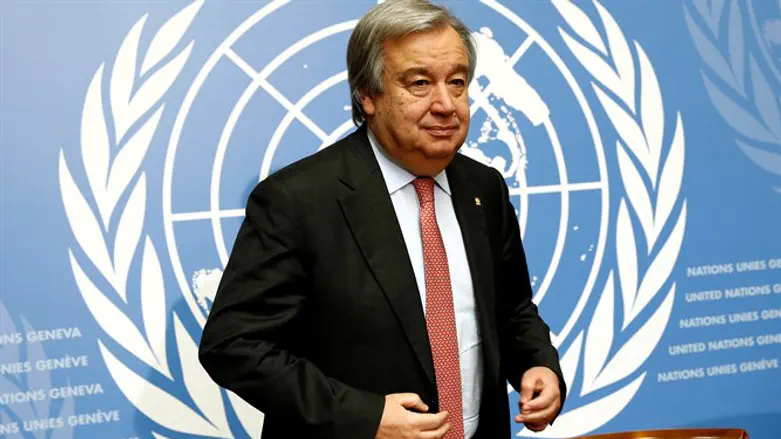
Antonio Guterres was sworn in on Monday as the ninth secretary-general of the United Nations, AFP reported.
During a solemn ceremony at the General Assembly, the former prime minister of Portugal placed a hand on the UN charter and took the oath of office administered by the president of the General Assembly, Peter Thomson.
Guterres will take over from Ban Ki-moon on January 1.
"This organization is the cornerstone of multilateralism, and has contributed to decades of relative peace, but the challenges are now surpassing our ability to respond," Guterres said in an address.
"The UN must be ready to change," he added.
The 67-year-old socialist politician said the United Nations must "recognize its shortcomings and reform the way it works," singling out the failure to prevent crisis as a serious weakness.
The UN's refugee chief for a decade, Guterres was sworn in as Syrian forces were on the verge of retaking the entire city of Aleppo -- a potential turning point in the nearly six-year war.
"This is a war in which everybody is losing. This became a threat for everybody around the world," Guterres later told journalists. "It is high time to put an end to this nonsense."
Guterres vowed to "engage personally" in conflict resolution, signaling a more pro-active approach to the role of secretary-general than under the 72-year-old Ban, the South Korean who led the world body for two five-year terms.
He laid out three priorities for change during his five-year term: work for peace, support sustainable development and improve internal UN management.
The election of Guterres has energized UN diplomats who see him as a skilled politician, able to overcome divisions that have crippled the United Nations, notably over Syria.
In October, shortly after Guterres’ appointment was announced, Israel’s UN ambassador Danny Danon wished him success and said he that he hoped "the UN under Guterres' leadership would be a fair body acting in the spirit of its founding fathers, would know how to distinguish between good and evil and would stop the obsession against Israel."
"I hope the change in leadership will lead to a cessation of the hostile attitude towards Israel," said Danon.
The UN is known for its anti-Israel bias, and just recently passed a series of anti-Israel resolutions during its annual “International Day of Solidarity with the Palestinian People”.
Ban admitted that the UN is biased against Israel during a 2013 session with students participating in the Rishon Lezion College of Management’s Model UN program.